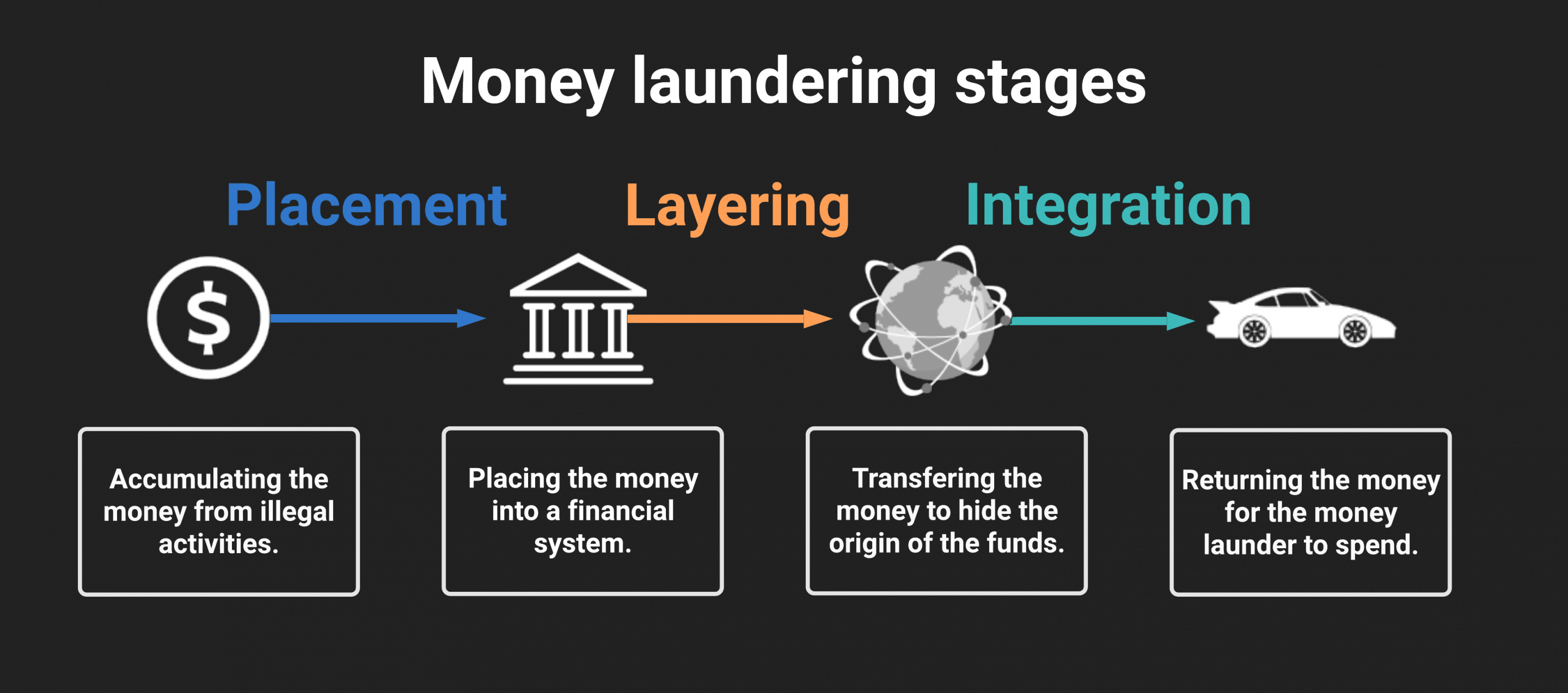Money laundering is a highly complex process with the aim to cover up the origin of money sourced from illegal activities. In the eyes of the law, money laundering is considered a serious criminal offence, and in extreme circumstances, can result in 14-years imprisonment and an unlimited fine.
If you have been accused of money laundering and need legal assistance, please visit our criminal solicitors page or contact one of our solicitors directly on 0203 007 5500.
What is money laundering?
Money laundering is the illegal process of covering up the origins of money acquired through criminal activity. Typically a money launder will cover up the funds’ origin by passing it through various banks and legitimate businesses.
Money launders use a wide range of methods to make illegally sourced money appear as ‘clean’. However, regardless of the methods used, the process will usually follow three stages.
What are the three stages of money laundering?
The three stages of money laundering are as follows:

1. Placement
Placement is the first stage of money laundering. At this stage, the ‘dirty money’ that has come from illegal activities is entered into a legitimate financial system. An example of placement can be placing the funds in a bank account to begin the cleaning process. Other examples of placement may include using the money to pay off debts, converting the cash to chips in the casino or falsifying invoices in a legitimate business.
Placement is often the most challenging stage for a money launder. Placing large amounts of cash into a financial system commonly causes suspicion.
2. Layering
Stage two of money laundering is the movement of money with the intent to mix it with legitimate funds and hide the dirty money’s illegal origin. Commonly, a money launder will go about layering by transferring funds both domestically and internationally through various bank accounts. Additionally, a money launder may also conduct layering by buying and reselling assets such as properties and other high-value goods.
The more layers there are, the harder it is to detect the origin of the funds.
3. Integration
Once the above stages are complete, the money is considered ‘clean’. Therefore, the money returns to the money launder from a seemingly legitimate source.
When the money reaches the integration stage, it’s almost impossible to distinguish whether the money launder’s wealth is legal or illegal. As a result, the money launder can spend their money without concern.
Examples of money laundering:
Some of the most common forms of money laundering include:
1. Casino laundering. In this instance, a money launder can purchase chips at a casino with the money they obtained illegally. At a later date, the launder can return the chips for cash or a bank transfer from the casino into their account.
2. Asset laundering. In this circumstance, a money launder can use illegitimate money to purchase assets, such as high-value items, such as artwork. Then at a later date, the launder will resell the item for cash or a bank transfer through an auction.
3. Trade laundering. This instance involves directors of legitimate businesses falsifying invoices to move illegitimate money. To banks and HMRC, it’s impossible to recognise that this money is illegitimate, as they appear as legitimate business transactions alongside actual business takings.
Nowadays, anti-money laundering checks have been brought into many businesses to prevent money laundering from taking place. For example, regulations have now be brought in place to reduce the opportunities to purchase properties with cash.











Comments
hi good day
i am not sure of what's going on but I've been studying from home on line on solar energy and responded and email because i requested and replied to work from home part time and I am concerned about something's
Wow, this was really interesting and informative. I appreciate your contribution to this page. Turn that dirty nasty money clean!
its free money. always do it.
Leave a comment Your email address will not be published.